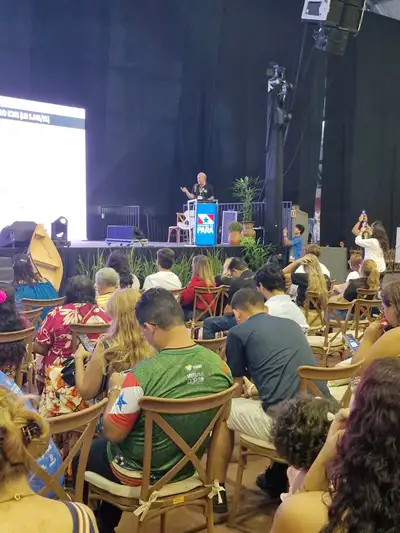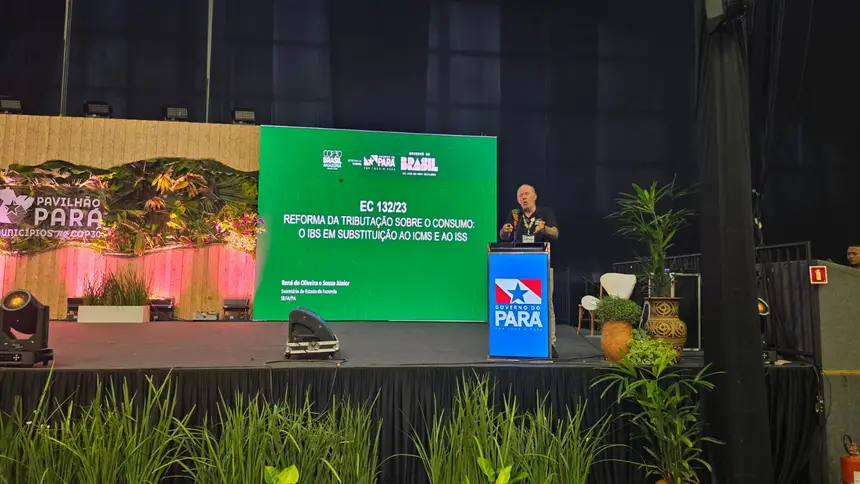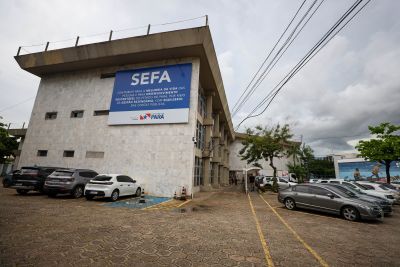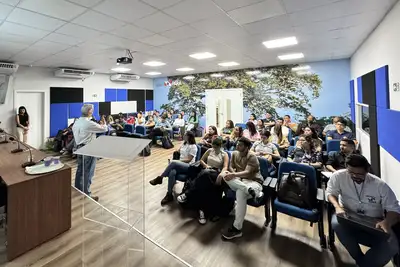Changes to the tax reform are presented by Sefa to municipal managers
Secretary René Sousa Júnior analyzed the effects of replacing ICMS and ISS with the Tax on Goods and Services (IBS), and showed how this transition will take place
The Secretary of State for Finance, René Sousa Júnior, addressed this Thursday (20), within the programming of the Pará-Municipal Pavilion, the theme "Impacts of Tax Reform", passing on information to public managers and technicians from the areas of finance, planning, and collection of the municipalities.
The tax reform on consumption was regulated by Constitutional Amendment No. 132/2023 and Complementary Law No. 214/2025. In the program, the head of Sefa commented on the impacts on the Federative Pact, analyzed the effects of replacing ICMS and ISS with the Tax on Goods and Services (IBS), showed how the transition to the new tax model with IBS will be, which will have shared governance between states and municipalities, through a Management Committee, and the reflections of the changes on the financial autonomy of municipalities.

Planning – The implementation of the Tax on Goods and Services will require planning and adaptation from state and municipal tax administrations. The new tax will have shared competence among states, municipalities, and the Federal District, and the administration will also be joint with the Union, through integration with the Federal Revenue.
René Sousa Júnior reminded that municipalities will have to necessarily issue the electronic service invoice, in addition to planning and restructuring the tax administration to transition to the new model, and monitor the actions of the IBS Management Committee. States and municipalities should seek greater integration to ensure stability in revenues.
For the head of Sefa, state and municipal finances will be impacted with greater integration and administrative uniformity, which can reduce litigation and improve efficiency. However, René Sousa Júnior emphasized that there will be significant challenges, such as adapting to shared governance, and the loss of autonomy over ICMS and ISS, which will be extinguished in 2033, when the new tax will come fully into effect.

Revenue Share - According to the legislation, 25% of ICMS and 50% of IPVA amounts belong to municipalities. The ICMS amounts are distributed among the 144 municipalities in Pará according to the following criteria: 65%, in proportion to the added value, and 35%, according to what state law provides. The 35% is distributed according to the following criteria: 10% - Educational Index; 10% in proportion to the population; 8% by Ecological Indices; 4% in equal parts and 3% in proportion to the territorial surface.
Starting in 2033, the criteria will be those provided in Article 158 of Constitutional Amendment 132/2023: 80% in proportion to the population; 10% based on indicators of improvement in learning outcomes and increased equity; 5% based on environmental preservation indicators, and 5% in equal amounts for all municipalities in the State.
Racial Equity Pact – The coordinator of the Tax School, Cristina Viana, and Paulo Victor Squires, consultant of the Inter-American Development Bank (IDB), will present this Friday (21), at the booth of the System of Courts of Accounts at COP30, in the Green Zone, the actions that Sefa is carrying out under the Racial Equity Pact, promoted by the State Court of Accounts (TCE).
Among the actions is the ethnic-racial survey of the Secretariat's servers. Sefa plans to carry out training actions on the subject to guide the servers.











